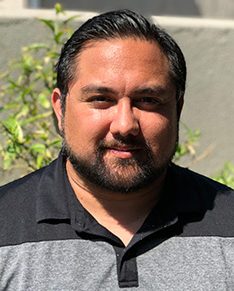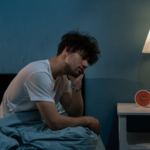How COVID-19 is affecting Olympic athletes with OCD


The 2020 Summer Olympic Games in Tokyo were recently postponed until 2021. Although this was highly disappointing to many, it was necessary for the safety of everyone involved. However, for many Olympic athletes the most distressing part was not that the Olympics was postponed, but the uncertainty of whether or not it would be postponed. CNN Sports interviewed Carla Edwards, M.D., a leading sports psychiatrist, on the impact of the coronavirus disease 2019 (COVID-19) pandemic on athletes with pre-existing obsessive compulsive disorder (OCD).
For people with OCD, uncertainty can be a source of intense anxiety. Everyone lives with uncertainty everyday. People can never be 100 percent certain that they will not get rear ended on their drive to the grocery store, or that they will not get a cold after touching a dirty door knob. For people with OCD, this lack of 100 percent certainty was already a source of intense anxiety before the pandemic. In order to cope, people with OCD engage in rituals or compulsions meant to reduce their anxiety such as avoiding touching doorknobs and washing their hands dozens of times a day, or even an hour.
Olympic athletes and OCD
Dr. Edwards discussed how Olympic athletes with OCD are engaging in these behaviors. She highlighted her work with athletes with a subtype of OCD she referred to as contamination concern, which can be exacerbated by the pandemic. Athletes with contamination concern OCD are exceedingly concerned about germs and contamination. However, they are often more afraid of contaminating or infecting others than they are of infecting themselves. Dr. Edwards commented that some athletes are washing their hands to the point of exposing their underlying muscle tissue. This compulsion is done in attempt to prevent themselves from infecting others. Although this is well meaning, it is ultimately no more helpful than following the CDC recommendation of washing one’s hands for only 20 seconds. Furthermore, the compulsion is done at great cost to the individual with OCD.
What helps?
Dr. Edwards pointed out that something that has helped elite athletes with mental illness is knowing that other elite athletes are also struggling with mental health issues. Serena Williams, one of the all-time great tennis players, recently admitted to suffering from intense health anxiety, especially when anyone sneezes or coughs near her. Hearing about the struggles of peers normalizes mental illness and reduces shame.
Dr. Edwards advice to Olympic athletes emphasized the importance of human interaction and selfcare. She stated that Olympic athletes are often so busy traveling and focusing on performing at the highest level that they neglect basic human needs such as human interaction with friends and family, sleep, food, and selfcare.
At CBT SoCal, we recommend individuals with OCD engage in exposure and response prevention, which is considered the gold standard treatment and can be conducted via online therapy (telehealth). Exposure and response prevention teaches individuals to face their feared situations without the need to use compulsions to reduce their anxiety.
If you are interested in learning more about OCD treatment options for athletes then please schedule a free consultation.

Dr. Jason von Stietz specializes in Cognitive Behavior Therapy and Sport/Performance Psychology in Torrance, CA. He provides online therapy (telehealth) by way of the Torrance office and is available for a free initial phone consultation. Dr. von Stietz works with individuals from Long Beach, the greater Los Angeles area, and the South Bay including Palos Verdes, Redondo Beach, Hermosa Beach, Manhattan Beach, El Segundo and all over California.




